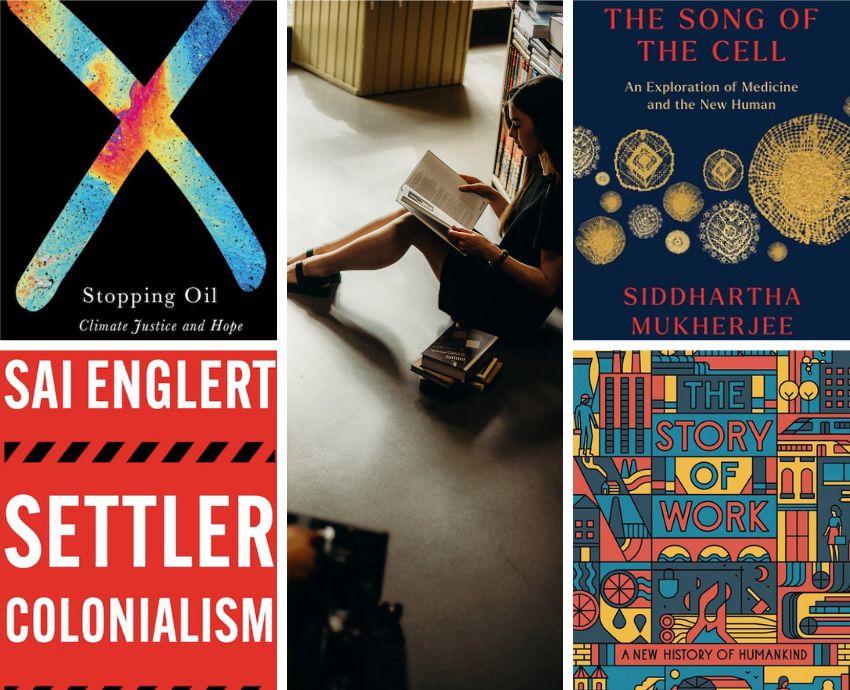
Climate and Capitalism editor Ian Angus presents seven new books on how the world works, from cells to imperialism.
Settler Colonialism: An Introduction
By Sai Englert
Pluto Press, 2023
Englert highlights the ways in which colonialism has shaped, and continues to shape, our global economic and political order. From the rapacious accumulation of resources, land and labour, through Indigenous dispossession and genocide, to the development of racism as a form of social control, settler colonialism is deeply connected to many of the social ills we continue to face today.
Time for Socialism: Dispatches from a World on Fire, 2016–2021
By Thomas Piketty
Yale University Press, 2021
Over 30 years, the bestselling author of Capital in the Twenty-first Century has moved from liberalism to socialism. In these essays, he argues for an inclusive and expansive conception of socialism, as a counterweight against the hypercapitalism that defines the dominant economic ideology in the world today. He’s no Marxist, but his critique of capitalism is powerful.
Toxic Legacy: How the Weedkiller Glyphosate is Destroying Our Health and the Environment
By Stephanie Seneff
Chelsea Green, 2021
A senior research scientist at the Massachusetts Institute of Technology delivers compelling evidence, based on peer-reviewed studies, showing that the world’s most-used herbicide is having devastating effects on human health. Agrochemical companies claim it is safe, but science and landmark legal cases disagree.
Can Global Capitalism Endure?
By William I. Robinson
Clarity Press, 2022
A “big picture” snapshot of the crisis of capitalism and the battle for the future of humanity. Drawing on 30 years of scholarship and activism, Robinson argues that in a desperate attempt to keep their power and profits as humanity enters a season of chaos and global civil war, our rulers will build a global police state to contain mass rebellion.
The Song of the Cell: An Exploration of Medicine and the New Human
By Siddhartha Mukherjee
Simon & Schuster, 2022
The discovery of cells — and the reframing of the human body as a cellular ecosystem — announced the birth of a new kind of medicine based on the therapeutic manipulations of cells. Mukherjee, a doctor, researcher and compelling writer, tells the story of how scientists discovered cells, began to understand them and are now using that knowledge to create new therapies and even new humans.
Stopping Oil: Climate Justice and Hope
By Sophie Bond, Amanda Thomas & Gradon Diprose
Pluto Press, 2023
The story of how community groups mobilised against deep-sea oil exploration in Aotearoa New Zealand, how that movement was attacked by the neoliberal state, and how solidarity and political responsibility shone through the repression, leading us towards a brighter future for climate justice across the globe.
The Story of Work: A New History of Humankind
By Jan Lucassen
Yale University Press, 2022
From hunter-gathering more than 700,000 years ago to zoom meetings, humans have always worked to make the world serve their needs. Lucassen’s ambitious history examines humanity’s labour throughout the ages, in China, India, Africa, the Americas and Europe, from peasant farmers in the first agrarian societies to the precarious existence of today’s gig workers.
[Reprinted from Climate and Capitalism. Inclusion of a book does not imply endorsement.]